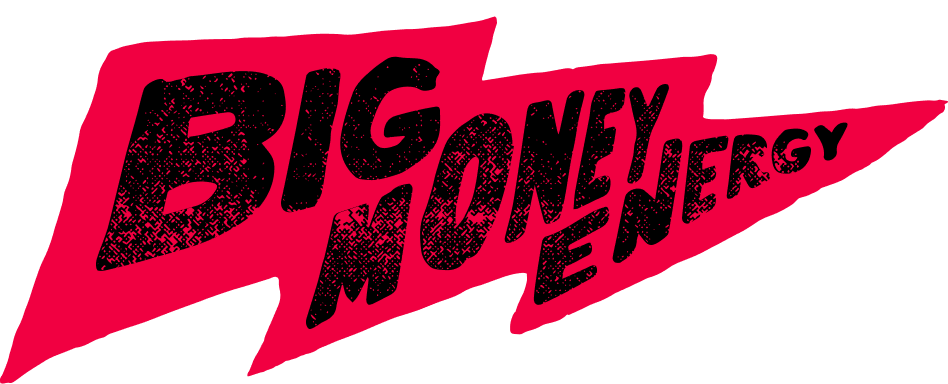
Most people don’t spend a lot of time thinking about carpeting, but it’s all around you once you start looking. Over 51% of floors in American homes are carpeted, and you’ll have a hard time finding offices with bare floors.
It makes a house feel like a cozy home. And it’s a great insulator that helps a ton with reducing noise in offices.
On the flip side, carpeting is a magnet for dander and dirt.
Homes with kids and pets? That carpet’s got a hard life.
Carpets should be deep cleaned a minimum of once per year. High-traffic areas need even more frequent cleaning.
That’s where you come in.
People don’t want to take the time to do that deep cleaning themselves. So they hire professional carpet cleaners to get the job done.

Carpet cleaning services have a low barrier to entry. You can start one of these businesses with some basic equipment as a 1-person crew. But it will take some time to become comfortable with your cashflow and profitability.
We recommend buying one of these businesses instead of starting a new one.
It may seem like taking that route means you need more money to start with, but your options are less limited than you think.
Here’s what you need to know about entering the carpet cleaning arena and why buying a carpet cleaning business that’s already got some traction is the better choice.
The Carpet Cleaning Business Landscape
If you’ve ever hired a carpet cleaner, you have some idea of how this business works. People have a dirty carpet, they call you, and you (or someone working for you) clean it up.
But what you may not know is how big this industry is.
Carpet cleaners as a whole clean up to the tune of about $5,000,000,000 in revenue every year.
You can charge anywhere from $0.20 to $0.40 per square foot for every job you take on. Most residential clients will pay around $180 for you to give their carpets a deep cleaning. Higher-end jobs can cost as much as $375.
That may not sound like a ton, but check out the margins.
Experts argue that a good profit margin for a small business is between 10-20%. Carpet cleaning companies go way above and beyond, with average margins closer to 50-60%.
If those numbers speak to you, carpet cleaning may be your perfect fit. But it can take a while to hit a comfortable cash flow when you start any new business, even one with high margins like this.
You’ll need to hire a crew to take on multiple jobs a day. You’ll need to nail down policies and processes. And you’ll need to find a way to balance that with finding new customers.
When you buy a carpet cleaning business, though, you start off with a more mature enterprise.
These businesses already have crews, policies, equipment, and a customer base. You’ll skip right past the early headaches and get to think about scaling up instead.
And you can find businesses like these for sale right now on sites like BizBuySell or BizQuest. If you’d prefer to use a platform we created to help entrepreneurs find off-market business deals, you can also check out BizScout.
But if starting fresh still sounds like your jam, you can follow the steps to starting a cleaning business below.
1. Create Your Business Plan
Your business plan lists all the nuts and bolts of how your business will work and the actual tactics you’ll use to achieve your goals.
A good business plan goes into detail on:
- Your target market
- The demand in your region
- Your services and pricing
- Your unique selling proposition or differentiators
- Short-term and long-term business goals
- Your business structure (such as a sole proprietorship, partnership, or limited liability company)
- Your marketing plan
That’s a lot to chew on, so let’s break it down a bit more.
The first thing to do is to decide who you want to serve.
If you’re just starting out, one-time residential jobs are your best bet. You can add on recurring commercial contracts as you grow your business. Some carpet cleaners choose to double-dip and target both markets.
Once you know that, you can move on to assessing the competition and demand.
Look up carpet cleaners in your area. How many are out there? Compare that to the population in your area.
Call the competitors to see how far out they’re booked. If they can’t get to you for a while, there’s probably still demand left in the market that you can soak up.
Get quotes from them, too. See what kinds of services they offer. That will inform you of the services that you can offer your own clients. This recon will also show you what your pricing might look like.
You might decide on a per room or per square foot pricing model, with special flat fees for things like area rugs or carpeted stairs.
Tack on extra fees for things like removing deep stains or pet urine.

Most people limit their services to basic carpet cleanings when they first start out.
But that shouldn’t stop you from thinking ahead about what you want the business to look like in the future and what your unique differentiator should be.
You might decide that you want to add additional services like furniture or upholstery cleaning. Or maybe niching down on something like flood and disaster cleaning is your jam.
Your niche and value prop can get really far out. For example, this woman specializes in cleaning up crime scenes, which makes her very unique in the market.
When it comes time to decide your business structure, meet with a lawyer and/or your accountant to discuss the pros and cons of various structures.
You may not need the complexity that comes with corporation status, but will need protection not offered by a sole proprietorship. Many carpet cleaning companies set up LLCs as the middle ground.
You’ll also need to look ahead to your marketing plan. To start with, choose a name for your business that’s memorable and makes what you do clear.
Business plans take a ton of effort, but they are essential for starting any new business.
A lot of this work is out of your way when you buy a business instead of starting one. Someone’s already got the business off the ground. Your goal when you buy is more about making the business better than getting it off the ground.
2. Know What Equipment and Supplies You’ll Need
Here’s the basic equipment you’ll need to start a carpet cleaning business:
- A commercial vacuum cleaner
- A specialized carpet cleaning machine (either a hot water extractor or steam cleaner)
- Cleaning wands and attachments for the vacuum and cleaning machine
- Cleaning chemicals, like:
- Carpet shampoo
- Spot/stain removers
- A carpet rake and brush
- Floor and corner guards
- Furniture protectors
- Cleaning towels and rags
Carpet cleaning chemicals can get nasty, so you’ll also want to invest in PPE, like:
- Respirators/masks
- Gloves
- Coveralls
Like other service-based businesses such as pool cleaning or lawn mowing, solid equipment goes a long way. You can look into used equipment to keep costs down, but get it inspected first.
This equipment will take up a lot of space, so you need a place to store it between jobs. If you’re just starting out, you may have room in your garage. Over time, you’ll end up needing a storage facility that can double as an office location.
Vehicles to cart all this equipment from job to job will be essential as your business grows. But you might be able to get away with hauling it in a single work truck while you’re still small.
Software is just as important as your physical tools, too.
Accounting software is a must for keeping track of your finances. And there are plenty of tools out there that help service business plan routes, invoice clients, track inventory, and more. Some options include:
The time, effort, and expense of gathering all the equipment you need for a new business is another reason why buying one is a good choice.
A carpet business that’s been around for a while will have all the physical equipment you need to hit the ground running. They may not have the tech in place, but you’ll have the advantage of starting with a foundation. You can use the business’s cashflow to fund optimizations like buying tools that make the business better.
3. Finance Your Business

Your top funding options for a carpet cleaning business include:
- Personal loans
- Credit cards or cash savings
- Business loans (like SBA loans or equipment loans)
- Investors
Each of these can get you started, but they also come with some drawbacks.
Both personal loans and business loans will saddle you with debt that you’ll need to pay off. Credit cards will do the same.
SBA loans are the gold standard but require a lot of paperwork. On the plus side, they offer good terms for most applicants.
If you use your personal cash savings, you’ll need to recoup that money fast to keep growing.
Investors may be an option. The problem is most people don’t know how to raise money from investors. Another downside is that you’ll lose out on some profits because you’ll need to share with anyone who invests.
There’s an additional option if you buy someone else’s business: seller financing.
With seller financing, you make an agreement with the owner to buy their business for a down payment. Then you pay them back over a period of time out of profits from the business.
No matter what financing option you choose, set up a business bank account. It’ll make the accounting, bookkeeping, and invoicing process far easier in the long run
4. Get Licensed, Certified, and Covered
As always, get a business license in your state. You might also need a city or county license.
Local permits and licenses will also apply, so check with your regional business agency office to confirm.
You should also purchase general liability insurance for protection. If you hire any employees, you need workers’ comp coverage, too.
Although you don’t need to hold a certification to run a carpet cleaning business, it’s a good idea to get some certs. Here’s why:
- It makes you look more professional and knowledgeable to clients
- It gives you confidence in your ability to troubleshoot on the job (let’s be real: who knows what you’re going to see once you get to someone’s house?)
- You can use these certifications to stand out from the competition
Find courses from the Institute of Inspection Cleaning and Restoration Certification. They offer specialized designations as:
- A carpet cleaning technician
- A rug cleaning technician
- A commercial carpet maintenance technician
Some equipment suppliers may also offer training on best practices overall and how to use their devices.
If you invest in certification for yourself, follow suit with all other workers, too.
Certs and registration are less of a hassle when you buy a carpet cleaning service. An established business will already have trained and certified technicians. You’ll be able to check that they have all the state and local licenses during the due diligence process, too.
5. Hire and Train Your Crew
You could start a one-person operation doing all the work yourself, but that’s not going to last you forever. Many savvy business owners opt to hand over the day-to-day work to employees or contractors after learning the ropes.
When you can refocus your efforts on marketing and general management, you can scale more faster while others take on the daily jobs.
It’s hard to estimate demand at the outset, so hiring contractors instead of employees gives you more flexibility. Over time, you may consider bringing on a few of your top performers as employees.
Understanding when and how to hire employees or contractors is a nightmare for many new business owners. And training them is a whole other animal. Buying a business offers a convenient way around this.
An established business will already have hiring and training practices. You also get to start with a crew in place as a base to grow from.
6. Marketing Your Business and Getting Your First Customers
As an unknown business, it’s not always easy to get the first few customers. Be upfront and honest that you’re new to get over this hurdle.
Most new carpet cleaners will need to get their first jobs through word of mouth. You can find friends, family, or business owners you know and ask them if they need their carpets cleaned. If not, they may know someone who does.
Some other ways you can reach your earliest customers include:
- Join networking groups locally, such as a Chamber of Commerce
- Use vehicle branding and local partnerships to get the word out
- Use flyers with special offers to celebrate your launch
You also need a strong online presence. Networking and word of mouth can get you a lot of business. But when people need a service, they tend to turn to the internet. You will miss out on these customers if you’re invisible online.
@omahacarpetcleaning #howto remove #bbq sauce from your carpet #carpet #satisfying #oddlysatisfying @porkybuttsbbq ♬ original sound – Kenney Services
You’ll want to build an online identity through:
- Social media accounts (just check out this carpet cleaning service with over 3M followers on TikTok)
- A search engine optimized website
- A Google Business profile
With your first few jobs, focus on getting reviews on Google Business and social media to show credibility. People will look your business up online before they hire you. Having a load of positive reviews from real people will help convince them that you’re the right person to hire.
An existing customer base and past marketing activities are 2 of the biggest advantages of buying a business.
When you take the helm, you can benefit from all the groundwork the previous owner put in. You can trade on the business’s reputation and keep money flowing in. At the same time, you can focus on expanding your marketing reach.
Growing Your Cleaning Business
Thinking about growth is where you’ll begin if you buy a carpet service. People who choose to start a new service will need to put in the hard work to get to this point.
But, when you do get here, every service-based business should zero in on 2 key strategies to grow the company:
- Customer service and retention
- Investments in continuous improvement
Here are four ways to develop a customer-centric company:
- Set expectations with customers before starting a service.
- Use feedback and reviews to learn areas where you can do things better.
- Train all staff on guidelines for customer interactions and quality standards.
- Reward existing customers by offering discounts or loyalty programs that encourage repeat business.
Smart carpet cleaning business owners always keep one eye on the future. This means:
- Staying updated with industry trends and technology.
- Reassessing and refining what you can do to make the service better for customers.
- Investing in ongoing training and development for staff.
From Stain to Gain: Start Your Carpet Cleaning Business Now
Regular cleaning keeps carpets looking fresh and smelling great. Most Americans know they want clean carpets but don’t want to invest the time or the hassle involved in trying to do it on their own.
Plenty of people don’t have enough need to buy their own carpet cleaning machine, and even dragging home a rental feels difficult and unnecessary. That’s where an onsite carpet cleaning business wins the day.
You can follow the steps above to start and grow your carpet cleaning business. But you’ll have an easier time if you buy one instead. You’ll cut out the startup anxieties and move straight to growing an already profitable business.





